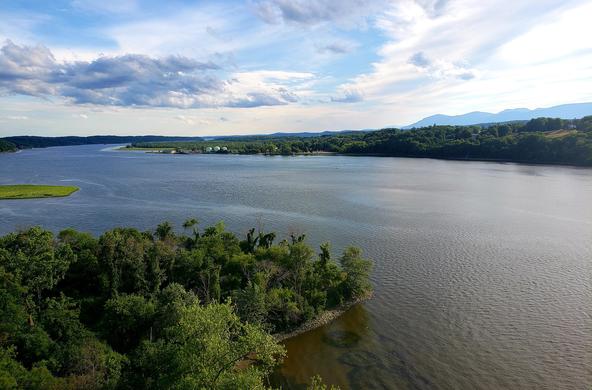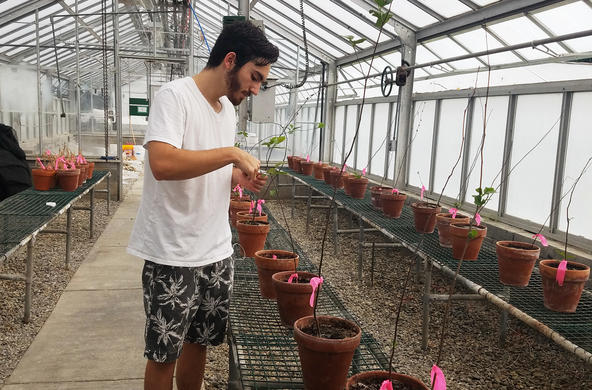I came to the United States almost three years ago from Cuba. I took four years of biochemistry at the University of Havana and I am continuing my studies here in biology. As my background is in biochemistry, I never expected to undertake an internship in ecology, but this summer has been eye-opening. This is the best experience I have had as an intern since I moved here. When this internship opportunity came along, I initially hesitated to apply. But now, after almost ten weeks of field and lab-based work in ecology, I am very happy that I did, and am very grateful to Cary Institute and to my mentor Stuart Findlay.
My research this summer has been looking at marsh conditions in the Hudson River, with the goal of determining how we might best manage marsh habitat to prevent it from ‘drowning’ due to sea level rise. The fieldwork I am doing is not easy and mainly involves collecting soil samples from marshes. This requires a lot of effort and sometimes I end up covered in mud, but it’s gratifying. I have also learned new laboratory procedures and ecology-related methods that have been interesting. Knowing how to perform procedures such as a ‘denitrification enzyme activity assay’ – a method that quantifies microbial activity in a soil sample – will be helpful if I want to apply my laboratory abilities to a field besides biochemistry.

I am interested in Cary scientists’ research and have received great advice from my mentor. The other REU students have also been excellent company during these ten weeks. The staff have been welcoming, accommodating, and supportive in both my internship experience and growth as a scientist. There are a lot of facilities that have helped me complete my research in an efficient manner. The workshops have also been very helpful, allowing me to improve my science writing and communication skills, learn how to analyze data in R, and understand the wealth of career opportunities available in the realm of translational ecology.
I also had the opportunity to teach local students, ages 8-13, who visited Cary Institute. With the other REUs, we covered a range of scientific concepts including soil layers, species preservation, and water contamination.

Cary Institute and the Bacon Flats lodge, where REU students live for the summer, are located in the middle of a beautiful natural environment. The campus is a great place to go walking, birding, and bike riding. Besides my research, I have enjoyed all the recreational activities that the property has to offer.
Marianela Robau, a student at the City College of New York, is part of Cary Institute's 2019 Research Experiences for Undergraduates (REU) program.
Marianela is working with Cary scientist Stuart Findlay to study how Hudson River marshes are responding to sea level rise.





